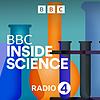
BBC Inside Science
BBC Radio 4
Categories: Science & Medicine
Listen to the last episode:
As another week of disruptive Just Stop Oil protests grabs media attention, sociologist Dana Fisher discusses which actions might help a cause - and which could harm it.
Japanese scientists have developed artificial skin for robots made from real human cells. Inside Science producer Dr Ella Hubber digs into the uncanny invention.
Inside Science reporter Patrick Hughes goes on the trail of methane emissions from landfills.
And, as a heatwave smothers the UK, physiologist Damian Bailey helps us figure out what the perfect temperature for a human is.
Presenter: Marnie Chesterton Producers: Ella Hubber, Gerry Holt, Sophie Ormiston Editor: Martin Smith Production Co-ordinator: Jana Bennett-Holesworth
Previous episodes
-
921 - What makes an effective protest?Thu, 25 Jul 2024
-
920 - Taylor Swift SeismologyThu, 18 Jul 2024
-
919 - Are implanted brain chips the future?Thu, 11 Jul 2024
-
918 - How do we solve antibiotic resistance?Thu, 04 Jul 2024
-
917 - Why do we sleep?Thu, 27 Jun 2024
-
916 - Micro Nuclear ReactorsThu, 20 Jun 2024
-
915 - Is gene therapy the future?Thu, 13 Jun 2024
-
914 - Is treated sewage worse for the environment than raw?Thu, 06 Jun 2024
-
913 - Ugly animals and asteroid ApophisThu, 30 May 2024
-
912 - Can we get plastic waste under control?Thu, 23 May 2024
-
911 - Do we need a new model of cosmology?Thu, 16 May 2024
-
910 - Bird flu outbreak in cowsThu, 09 May 2024
-
909 - 200 years of dinosaur scienceThu, 02 May 2024
-
908 - Inside Your MicrobiomeThu, 25 Apr 2024
-
907 - Our Accidental UniverseThu, 18 Apr 2024
-
906 - World’s oldest forest fossilsThu, 11 Apr 2024
-
905 - Human Consciousness: Could a brain in a dish become sentient?Thu, 26 Apr 2018
-
904 - Plastic-eating bacteria, Foam mattresses for crops, The evolved life aquatic, The Double HelixThu, 19 Apr 2018
-
903 - Pesticides in British FarmingThu, 12 Apr 2018
-
902 - Stephen Hawking TributeThu, 05 Apr 2018
-
901 - Genes and education, John Goodenough, Caring bears and huntingThu, 29 Mar 2018
-
900 - Data ScrapingThu, 22 Mar 2018
-
899 - Buzz killThu, 15 Mar 2018
-
898 - Russian Spy PoisoningThu, 08 Mar 2018
-
897 - Weird Weather?Thu, 01 Mar 2018
-
896 - Science after BrexitThu, 22 Feb 2018
-
895 - Shipping air pollution; Cheddar Man; Millirobots in the body;Dog brain trainingThu, 15 Feb 2018
-
894 - Democracy in SpaceThu, 08 Feb 2018
-
893 - Scientists on TrialThu, 01 Feb 2018
-
892 - Did typhoid kill the Aztecs, DNA stored in Bitcoin, Glow-in-the-dark plants and levitating humansThu, 25 Jan 2018
-
891 - African swine fever, Oil spill update, CRISPR gene editing, Rat eradication in New Zealand, Chimp kin recognitionThu, 18 Jan 2018
-
890 - Sanchi oil tanker, Gut gas-monitoring pill and Chimpanzee portraitsThu, 11 Jan 2018
-
889 - Tabby's Star, Space 2018, Mosquito sounds, C diff and food additive linkThu, 04 Jan 2018
-
888 - Ancient DNA and Human EvolutionThu, 28 Dec 2017
-
887 - Antisense RNA therapy, Fossils vs Trump, Printing mini-kidneys, Electric eel powerThu, 21 Dec 2017
-
886 - The Future of Coral Reefs, Little Foot, Arthur C ClarkeThu, 14 Dec 2017
-
885 - Trophy hunting, Gene drives, Nuclear lightning, Peregrine falcons and dronesThu, 07 Dec 2017
-
884 - Prehistoric Strong Women, Semi-synthetic Life, Listener Feedback, Artificial SuperintelligenceThu, 30 Nov 2017
-
883 - Interstellar visitor, Svante Paabo, Synthetic biology, Plight of the AxolotlThu, 23 Nov 2017
-
882 - Can we forecast earthquakes?, Britain's space race rocket Skylark, Francis GaltonThu, 16 Nov 2017
-
881 - Boy gets New Skin, The York Gospels, Stephen Hawking's ThesisThu, 09 Nov 2017
-
880 - Climate Change and Health; Moth Snow Storm Feedback; Whale Brain Evolution; Pharoah's SerpentThu, 02 Nov 2017
-
879 - Insects disappearing, DNA Biosensor, Dog faces, Bandit dinosaurThu, 26 Oct 2017
-
878 - Colliding Neutron Stars, Krakatoa, Centigrade vs CelsiusThu, 19 Oct 2017
-
877 - HiQuake, Plate Tectonics@50, Sonic Weapon Puzzle, The Chinese TypewriterThu, 05 Oct 2017
-
876 - Gravity wave breakthrough, The antibiotic pipeline, Microbial waste recycling, Fausto - an AI operaThu, 28 Sep 2017
-
875 - Cassini's finale; Science and Technology Select Committee; Crick's lecture; Cave acousticsThu, 21 Sep 2017
-
874 - Farewell to Cassini, the epic 20 year mission to SaturnThu, 14 Sep 2017
-
873 - North Korea Bomb Tests, Warming Antarctic Sea Life, the Microbiome, Cuckoo ChuckleThu, 07 Sep 2017
-
872 - Noxious haze over south coast; In Pursuit of Memory book; technosphere; Big Wasp SurveyThu, 31 Aug 2017



















